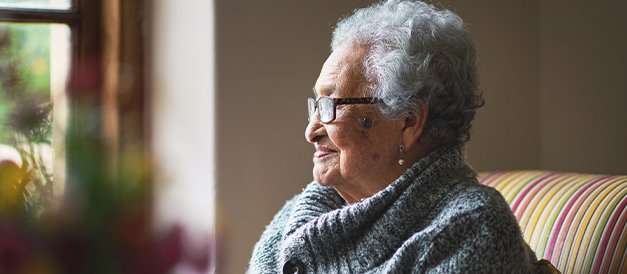Many people travel to high-altitude destinations, meaning clinicians are often faced with questions about how to prevent and treat altitude illness. Update your knowledge with this New Zealand Society of Travel Medicine summary of updated evidence-based guidelines with comments by senior lecturer Jenny Visser – it outlines the best prophylactic regimens, diagnostic approaches and treatment protocols for acute altitude illness
Assisting seniors who live alone to preserve their independence
Assisting seniors who live alone to preserve their independence

Accessing help faster and instilling the confidence to live independently are recognised benefits of personal medical alarms.8
By 2028 the number of New Zealanders aged 65 years or older is expected to reach one million, a nearly 20% increase from 2022.1 With an ageing population, the adoption of public policies to encourage “ageing in place” has meant that living alone is a viable option for older adults.2,3 According to a study on the living arrangements of older New Zealanders residing in their own homes, nearly half lived alone.4
Many community-dwelling older adults find themselves living alone after the death of a partner or relationship break-up, while for others it is a conscious choice, preferring the additional personal autonomy.2
Irrespective of the reason, older adults living in single-person households are vulnerable to the physical realities of ageing,5 and the risk of future acute medical events due to increasing frailty and chronic health conditions. For example, older age and living alone have been identified as risk factors for fall-related injuries in New Zealanders aged ≥65 years.6 Fall-related injuries can not only lead to death, but also to loss of function, disability and hospitalisation,6 which can compromise independence for older adults.
Seniors value their independence and want to remain living in their communities.7 In a series of interviews with community-dwelling older adults aged ≥65 years from across New Zealand, the majority of whom were living alone, ‘age-specific preparedness’ was identified as a strategy to maintain independence and wellbeing.5 Concerns about health informed preparedness, including anticipating health decline and the potential need for support.
Many of those interviewed acknowledged the value of supportive technologies to assist in maintaining their independence.5 Medical alarms were recognised as an important intervention for mitigating the risk of an acute medical event such as a heart attack or stroke within the context of the day-to-day management of independence. Accessing help faster and instilling the confidence to live independently are recognised benefits of personal medical alarms.8
Older adults should be supported to live in their own homes, so they can maintain their independence and connections to the community.9 Research shows that older adults residing alone in the community are taking steps to prepare for personal health emergencies as a means to maintain their independence.5 This presents an opportunity to recommend enablers of early intervention such as a personal medical alarm.
As seniors who live alone at home are more vulnerable to the adverse consequences of ill health,5 primary care health practitioners are well placed to identify these patients via an audit of practice data, or by inquiring about living arrangements as part of a general health appraisal during a consultation.
After identifying older patients who live alone, you can support their health preparedness by referring them for a St John Medical Alarm. Linked directly to Hato Hone St John and offering a 24/7 emergency response, a St John Medical Alarm will provide them with the peace of mind and confidence to live independently, knowing that timely assistance is just the press of a button away should they experience an acute health-related event in the future.
Referral is straightforward using your Practice Management System via either Healthlink or ERMS. All patients are eligible for a FREE trial.
Full details are available at: stjohnalarms.org.nz/hcp
1. Stats NZ. 2022. One million people aged 65+ by 2028 [press release]. Wellington: Statistics NZ. 27 July 2022. 2. Koopman-Boyden P, et al. Living alone as a lifestyle of older people in New Zealand: policy implications. Policy Quarterly. 2014;10(3):54-9. 3. Davey J. "Ageing in Place": The views of older homeowners on maintenance, renovation and adaptation. Soc Policy J NZ. 2006(27):128-41. 4. Jamieson HA, et al. Profile of ethnicity, living arrangements and loneliness amongst older adults in Aotearoa New Zealand: A national cross-sectional study. Australas J Ageing. 2018;37(1):68-73. 5. Tuohy R, et al. Older adults' meanings of preparedness: a New Zealand perspective. Ageing and Society. 2016;36(3):613-30. 6. Abey-Nesbit R, et al. Risk factors for injuries in New Zealand older adults with complex needs: a national population retrospective study. BMC Geriatr. 2021;21(1):630. 7. Associate Minister of Health. Healthy ageing strategy. 2016. Wellington: Ministry of Health; 13 December 2016. 8. Stokke R. The Personal Emergency Response System as a technology innovation in Primary Health Care Services: An integrative review. J Med Internet Res. 2016;18(7):e187. 9. Office for Senior Citizens. 2014 Report on the Positive Ageing Strategy. 2015. Wellington: Office for Senior Citizens.

